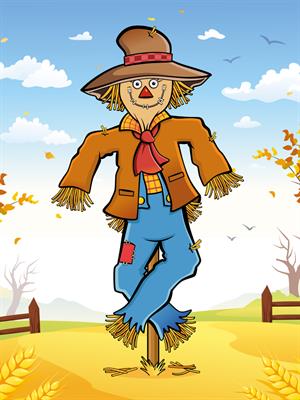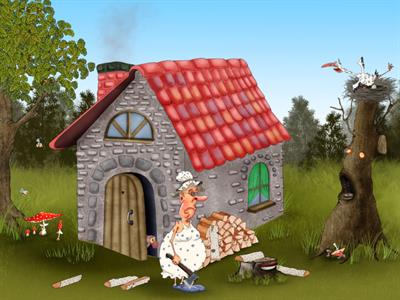
PUMPA - SMART LEARNING
எங்கள் ஆசிரியர்களுடன் 1-ஆன்-1 ஆலோசனை நேரத்தைப் பெறுங்கள். டாப்பர் ஆவதற்கு நாங்கள் பயிற்சி அளிப்போம்
Book Free DemoThe lesson "The Beggar" was written by Anton Chekhov. The story is about a beggar named Lushkoff, and he is the protagonist of the story.
The story opens with the beggar saying to someone to have some pity and attention towards him. He said that he hadn't eaten anything for the past three days and did not have five copecks (Russian coin equal to one-hundredth of a rouble) to pay for a room to spend the night. He also stated that he would promise it before God that he was speaking the truth.
The story opens with the beggar saying to someone to have some pity and attention towards him. He said that he hadn't eaten anything for the past three days and did not have five copecks (Russian coin equal to one-hundredth of a rouble) to pay for a room to spend the night. He also stated that he would promise it before God that he was speaking the truth.

A beggar
Then the beggar narrated his past stories to seek the attention of the man. He said that he had been working as a school teacher in a village for eight years. Unfortunately, he had lost his job due to the conspiracy of his colleagues. He was penalised for the wrong that he had not committed. He said that he was sitting without having any work to do for the last year. The beggar was attempting to get money or assistance from the man through his sympathetic conversation.
After hearing the beggar's pity talk, Sergei, an advocate, looked at the beggar. The beggar wore a tattered, light brown coloured overcoat. His eyes seemed to be dull and drunken. There were red spots on both his cheeks. While seeing the beggar's appearance, Sergei remembered that he had seen the man somewhere before.
The beggar then continued to say that he had received a job offer in the Russian province of Kaluga. He said that he did not have enough money to travel there. So he asked Mr Sergei to help him. Even though the man was begging, he admitted that he felt ashamed to ask for help, but his circumstances had forced him to beg.
The beggar then continued to say that he had received a job offer in the Russian province of Kaluga. He said that he did not have enough money to travel there. So he asked Mr Sergei to help him. Even though the man was begging, he admitted that he felt ashamed to ask for help, but his circumstances had forced him to beg.
While looking at the beggar, Sergei’s eyes fell on the man’s overshoes. One of his shoe heels seemed to be low, and the other seemed to be high. On seeing the shoes, suddenly Sergei remembered about something. Sergei informed him that he had seen him the day before on Sadovya Street. He said that the beggar had told him that he was a student who was sent out from the institution and not a village schoolteacher. It means that the beggar was telling different stories at varying places. Later, Mr Sergei asked the beggar if he remembered the stories told by him.
The beggar was shocked when he heard that from Mr Sergei and whispered that it couldn’t be. He repeated that he was a schoolteacher and that he could present his documents if Mr Sergei needed proof. After hearing the beggar’s statements, Sergei said that he had lied enough. He further stated that the beggar had earlier informed him that he was a student and the reason behind being expelled from the institution. Mr Sergei became very angry because of the unacceptable lies. His face became red, and he turned away from the beggar with an expression of aversion.
The beggar was shocked when he heard that from Mr Sergei and whispered that it couldn’t be. He repeated that he was a schoolteacher and that he could present his documents if Mr Sergei needed proof. After hearing the beggar’s statements, Sergei said that he had lied enough. He further stated that the beggar had earlier informed him that he was a student and the reason behind being expelled from the institution. Mr Sergei became very angry because of the unacceptable lies. His face became red, and he turned away from the beggar with an expression of aversion.

Sergei became angry after hearing Lushkoff's lies
After turning back, Mr Sergei shouted angrily, “This is dishonesty, my dear sir!”. He made the statement because the beggar was a fraudster who was getting money from people in the name of telling lies. Then he said that he would call the cop to arrest him.
After thinking that Mr Sergei might call the police, the beggar kept his hand on his heart and confessed that he was lying. He said that whatever he said was a lie, and it wasn’t true. He wasn’t a student or teacher. The real thing was that he was a member of a Russian choir group who was expelled after consuming alcohol. Furthermore, he stated that there was nothing else he could do because if he did not tell any lies, no one would help him. He also stated that he lied because people would not give him money if he spoke the truth.
After thinking that Mr Sergei might call the police, the beggar kept his hand on his heart and confessed that he was lying. He said that whatever he said was a lie, and it wasn’t true. He wasn’t a student or teacher. The real thing was that he was a member of a Russian choir group who was expelled after consuming alcohol. Furthermore, he stated that there was nothing else he could do because if he did not tell any lies, no one would help him. He also stated that he lied because people would not give him money if he spoke the truth.
Sergei screamed at him and told him that instead of begging with different lies, he could work. The beggar then stated that he was aware that he needed to work, but he wondered where he could find a job. After hearing the beggar's concern, Mr Sergei asked him whether he would like to chop wood for him. The beggar then stated that he would accept the offer made to him. On the other hand, he said that even the experienced woodcutters were currently unemployed.

Chopping wood
The beggar then said that he would chop wood for him. Sergei said that the beggar's willingness to work would be judged soon. Then he walked off, rub his hands and called the cook from the kitchen. The name of the cook was Olga. He asked Olga to take the gentleman to the woodshed and let him chop wood.
The beggar had the appearance of a scarecrow. It means the beggar is very badly dressed, odd-looking, or thin. He shrugged his shoulders after that. The phrase "shrugged his shoulders" literally means to make a gesture by lifting and lowering one's shoulders, often suggesting doubt or confusion. The beggar was confused and unsure of what to do, so he hesitantly followed the cook. His walk revealed that he consented to chop wood not because he was hungry or in need of work. But he felt ashamed and humiliated because his own words had trapped him. The beggar did not feel strong enough because he was addicted to drinking vodka and could not do hard, laborious work.

Scarecrow
When the beggar went with Olga, Mr Sergei rushed to the dining room. Mr Sergei went to the dining room to look outside the window. The woodshed and everything going on in the yard could be seen from his windows. Sergei stood at the window and watched the cook and the beggar enter the yard through the back entrance. They made their way to the shed through the muddy snow. Olga, the cook, glared fiercely at the beggar and pushed him inside with her elbow. She unlocked the shed and angrily shut the door.
Then Mr Sergei saw that beggar sitting on a big piece of wood. The narrator calls the beggar a "pseudo-teacher" because he initially introduced him as a teacher. The beggar was lost in thought and sat with his cheeks resting on his fists. The woman threw an axe at his feet and shouted violently at him. While looking at the expression of the maid's lip, it could be understood that Olga was scolding him.
After that, the beggar pulled the piece of wood towards him. He placed the wood between his feet and hit it weakly with the axe. The wood swayed and dropped to the ground. Then he pulled it up again and tried to warm up his hands by blowing into them and tapped the wood with the axe. Moreover, he was careful not to hit his shoes or cut his finger. The wood fell once again.
After seeing the beggar's situation, Sergei's anger towards him had disappeared. He felt sad and ashamed for putting the drunken poor man to do unskilled labour in the cold.
Then Mr Sergei saw that beggar sitting on a big piece of wood. The narrator calls the beggar a "pseudo-teacher" because he initially introduced him as a teacher. The beggar was lost in thought and sat with his cheeks resting on his fists. The woman threw an axe at his feet and shouted violently at him. While looking at the expression of the maid's lip, it could be understood that Olga was scolding him.
After that, the beggar pulled the piece of wood towards him. He placed the wood between his feet and hit it weakly with the axe. The wood swayed and dropped to the ground. Then he pulled it up again and tried to warm up his hands by blowing into them and tapped the wood with the axe. Moreover, he was careful not to hit his shoes or cut his finger. The wood fell once again.
After seeing the beggar's situation, Sergei's anger towards him had disappeared. He felt sad and ashamed for putting the drunken poor man to do unskilled labour in the cold.
After an hour, Olga approached Sergei and informed him that all of the wood pieces had been chopped. Sergei was relieved to learn that the beggar had completed his assignment. He asked Olga to pay him half a rouble (the conventional unit of currency in Belarus, Russia, and Tajikistan) for the work he had done. He also told her that she could inform him to come to chop the wood on the first of every month to make money. Also, he said that they could find some work for him whenever he needed it.
Then the beggar turned up on the first of the following month and got half a rouble. The income made him manage his situation. He began to come to the yard regularly after that and found his work. After chopping the wood, he was assigned to shovel snow, clean the woodshed, and beat the dust out of rugs and beds. After completing his work, he was given twenty to forty copecks each time. Also, a pair of old trousers were given to him.
Then the beggar turned up on the first of the following month and got half a rouble. The income made him manage his situation. He began to come to the yard regularly after that and found his work. After chopping the wood, he was assigned to shovel snow, clean the woodshed, and beat the dust out of rugs and beds. After completing his work, he was given twenty to forty copecks each time. Also, a pair of old trousers were given to him.

Shovelling snow
Sergei later moved to a new home and hired the beggar to assist him in transporting items such as furniture. When Mr Sergei summoned him to pack his belongings, the beggar was not under the influence of alcohol. On the other hand, he was depressed and stayed silent. He didn't even help move the furniture. He simply walked behind the vans, his head hung low, and he did not attempt to appear occupied. He shook from the cold and appeared embarrassed when other workers mocked him for being lazy and weak and laughed at his torn overcoat. Sergei called the beggar after the work was completed.
Sergei expressed his delight at the beggar's transformation as a result of his scolding. He paid him a rouble for his services and inquired about his name, as he had stopped drinking and was looking for a job. The beggar introduced himself as Lushkoff. Sergei asked if he could write so that he could provide him better work. Lushkoff said that he could do it. Sergei handed him a letter that he was to deliver to a friend the next day. Sergei's acquaintance would give Lushkoff copying work. He told him that he needed to put in a lot of effort. Later, Mr Sergei bid goodbye and left the place. 
Sergei handed a letter to Lushkoff
Sergei was relieved that the beggar had become a better person. He put his hand on Lushkoff's shoulder and shook his hand. Lushkoff accepted the letter and did not return to the yard for work after that.
After two years, one evening, Sergei was standing at the ticket window of a theatre. He was going to purchase a ticket. He noticed Lushkoff standing beside him. He was well-dressed, wearing a coat with a fur collar and a shabby or old sealskin cap. He was nervous when he asked for a gallery seat ticket and paid for it with copper coins. Sergei approached Lushkoff and greeted him. He inquired how he was, what he was up to, and how things were going. Lushkoff responded that he was fine and that he was employed as a notary. Also, he said every month he was paid thirty-five roubles. 

Sergei handed a letter to Lushkoff
Sergei was relieved that the beggar had become a better person. He put his hand on Lushkoff's shoulder and shook his hand. Lushkoff accepted the letter and did not return to the yard for work after that.
After two years, one evening, Sergei was standing at the ticket window of a theatre. He was going to purchase a ticket. He noticed Lushkoff standing beside him. He was well-dressed, wearing a coat with a fur collar and a shabby or old sealskin cap. He was nervous when he asked for a gallery seat ticket and paid for it with copper coins. Sergei approached Lushkoff and greeted him. He inquired how he was, what he was up to, and how things were going. Lushkoff responded that he was fine and that he was employed as a notary. Also, he said every month he was paid thirty-five roubles.
Sergei expressed his gratitude to God for helping the beggar. He claimed that he considered Lushkoff to be his godson because he had changed due to his scolding. The beggar had been at his feet that day, begging for mercy. Mr Sergei was relieved that Lushkoff remembered his words.
Lushkoff thanked him and stated that he would still be lying and begging if he hadn't met Sergei that day. Sergei helped him out of the pit, and he was grateful for his assistance. Sergei was appreciated for his kindness. He expressed his gratitude to the cook. She was a lady of honour. Despite Sergei's kindness, Olga was the one who saved and rehabilitated him.
Then Mr Sergei asked him the reason behind his statement. Lushkoff said that Olga would scold him whenever he went to the place to chop wood. She would sit opposite to him and cry because she was sad for him. She would say that he was a miserable person and could never get out of trouble. She would say that if he continued drinking, he would always remain a poor person. Also, she would say that he was an unlucky person and would be burnt in hell.
Lushkoff said that the main thing was that she had chopped all the wood for him. Then he said that he did not know why he was changed or why he stopped drinking. All he knew was that her actions had an impact on him. He said that Olga had put him in the right direction. Moreover, Lushkoff said that he would not forget the lady because she had changed his life. While Mr Sergei and Lushkoff were conversing with each other, the bell rang. Later, Lushkoff bent before him as a mark of respect and went to the theatre's gallery.
Lushkoff thanked him and stated that he would still be lying and begging if he hadn't met Sergei that day. Sergei helped him out of the pit, and he was grateful for his assistance. Sergei was appreciated for his kindness. He expressed his gratitude to the cook. She was a lady of honour. Despite Sergei's kindness, Olga was the one who saved and rehabilitated him.
Then Mr Sergei asked him the reason behind his statement. Lushkoff said that Olga would scold him whenever he went to the place to chop wood. She would sit opposite to him and cry because she was sad for him. She would say that he was a miserable person and could never get out of trouble. She would say that if he continued drinking, he would always remain a poor person. Also, she would say that he was an unlucky person and would be burnt in hell.
Lushkoff said that the main thing was that she had chopped all the wood for him. Then he said that he did not know why he was changed or why he stopped drinking. All he knew was that her actions had an impact on him. He said that Olga had put him in the right direction. Moreover, Lushkoff said that he would not forget the lady because she had changed his life. While Mr Sergei and Lushkoff were conversing with each other, the bell rang. Later, Lushkoff bent before him as a mark of respect and went to the theatre's gallery.

Olga chopping wood on behalf of Lushkoff
From the above statement, one can understand the kindness of the old lady. Even though she understood that the man could not do his work, Olga helped him finish his work. Also, her words and kindness towards him had made him work hard and get rid of his drinking habit. Through this story, the writer conveys that Mr Sergei had given the platform for Lushkoff's living. But Olga was the one who made him become a better person. Her words and good deeds brought a change in Lushkoff's life.
From the above statement, one can understand the kindness of the old lady. Even though she understood that the man could not do his work, Olga helped him finish his work. Also, her words and kindness towards him had made him work hard and get rid of his drinking habit. Through this story, the writer conveys that Mr Sergei had given the platform for Lushkoff's living. But Olga was the one who made him become a better person. Her words and good deeds brought a change in Lushkoff's life.